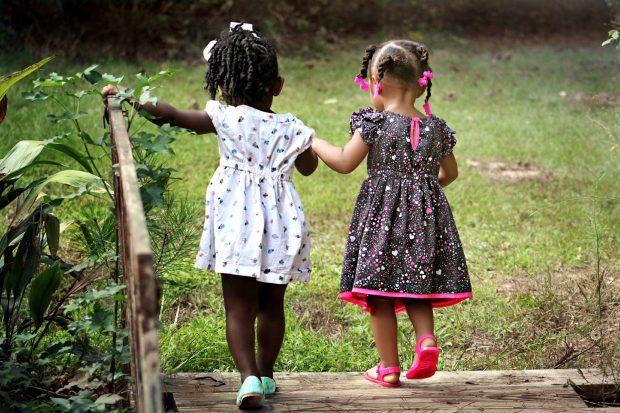Classrooms are the best places for children to acquire social skills as they can interact with other children and learn from experience, the natural ability they possess. However, in the days of COVID-19, when children stay confined at homes as part of the social distancing measures necessary to combat the coronavirus, they are unable to practice the skills of socializing in the way they are used to. Children heavily rely on their social skills to help them navigate the world around them, and these are the building blocks during the growing years. Since homeschooling has now become the norm, which helps children learn most of the covered curriculum based on reading and writing skills, they do not get any opportunity to practice social skills as they are unable to mix with other children.
The classroom environment teaches children how to deal with disappointment, respond to people, make eye contact, play fairly, take turns, share, listen without interrupting, use appropriate manners and greetings, and accept loss or win gracefully. Jonah Engler points out that although it is not possible to learn all these things in insolation, it is possible to pick up things that the children are missing by engaging in some targeted play at home that can help as much to create social awareness.
During this time, when we can socialize with people beyond the social distancing circle through phone, the text of video chat, setting up a virtual playdate with a mate can help the child to learn many things. The child must demonstrate the body language to show that he or she is listening, learn to wait for his or her turn, and make eye contact. We can take the opportunity of using the virtual world while at home to help kids hone their social skills.
Here are some social activities that you can do with your kids while stuck at home.
Jonah Engler Advises Practicing Perspective Talking
You can practice this activity even while watching TV or a movie with your child that helps to identify the thoughts and feelings of others. Press pause and ask your child how do the characters feel at that time and what they are thinking. You can also practice this activity while doing some role play during a game. For talking through feelings and emotions, films like Inside Out, The Incredibles, and The Good Dinosaur are great options. Making puppets talk about their feelings and thoughts during a puppet show is another option.
Taking Turns
Those who have one child can still play, taking turns helping the child to learn the skill by preparing the mind to wait for the turn. Take out a unique item that your kids always longed for and would like to touch or some special toy that you keep away from them for use on special occasions. Give the item to one child and allocate 5 minutes to keep it with him or her and then hand it over to the other child when the timer goes on to alert the child that it is time to hand over the item.
Character Play
Pick some character toys like Barbie dolls or Peppa Pig and have them pretend to have some conversation. For example, you can make the characters talk about baking a cake in the toy kitchen, pretending that they are getting ready to celebrate a birthday party. You can provoke them to speak by asking what do you say to a friend on his or her birthday. Listen to what the child says and then acknowledge the response and wish him a great day. Play the role of the characters of the toys to express how they feel or think. This activity works on things you think your child needs more support.
Virtual Playdates or Facetime
Playing with a friend over a computer or phone can help to indulge in a lot of social activities while sitting at home and generate the same sense of togetherness that your child is craving for. Your child can engage in arts and crafts or coloring simultaneously with a friend and can discuss with one another on what they are working and will likely have other conversations too. Proper communication is an essential skill that people are trying to develop while they are social distancing and trying to keep up their relationships. We had never faced such a situation when we had to depend entirely on our communication skills to be present.
When children interact with other children during recess or playdates at the park, they can be involved in group play without fully engaging with their peers or fully attending to. Virtual communication and Distance learning teach children how to ask a question to carry on conversations and how to take turns talking. They even learn how to use greetings like Hello or Hi, consistently.
Problem Solving with Props
Plastic cups, paper clips, tape, cotton balls, sticky notes, popsicle sticks, and paper straws are some of the items that you must have ready at hand. You can substitute some of these items with things you have around. Ask your child to solve problems with the items in front of them by asking them to create a jump ramp for cars, a slide for mini-figures, and build the tallest tower possible. You can try this activity on a virtual playdate to see how your child and his or her buddy come up with themselves.
Tell Short Stories
This activity helps to practice listening, patience, following directions, co-operation, and showing empathy and ignoring distractions. Create a stack of flashcards with story topics you want to discuss with your child, which could be like a favorite holiday, favorite summer memory, a dream you once had, and the best birthday party idea. Pick a card, set the timer, and tell your story in 2-5 minutes. After the child tells a story, summarize what she said and seek clarifications to enable him or her stay on track and even show that you were listening. During the interaction, show empathy for the child by referring to incidents from the story.
Read More:
Inner bullying: what it is and how you can beat it
Top 5 ideas to use your kid’s mismatched socks
Mom’s guide to preparing for a business trip
Top 15 strategies for raising emphatic kid’s



